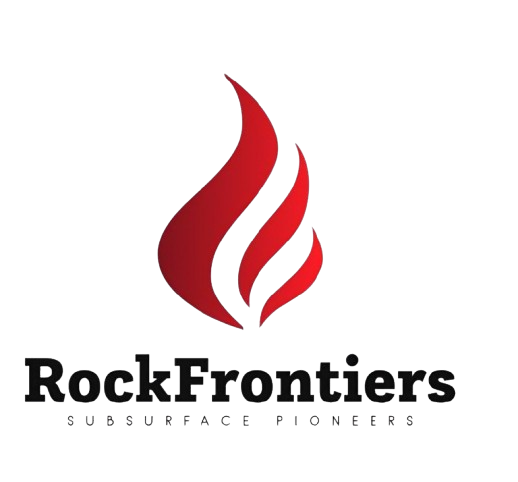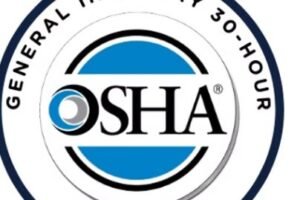📊 3D Seismic Attributes for Reservoir Characterization
📄 Course Description: This intensive course provides a practical understanding of 3D seismic attributes and their application in reservoir characterization. It covers both theoretical and applied aspects of seismic attributes, focusing on how they enhance interpretation, reveal depositional environments, fracture …
Overview
📄 Course Description:
This intensive course provides a practical understanding of 3D seismic attributes and their application in reservoir characterization. It covers both theoretical and applied aspects of seismic attributes, focusing on how they enhance interpretation, reveal depositional environments, fracture systems, and fluid indicators. Participants will use real-world examples to gain experience in applying seismic attributes to solve exploration and development challenges.
👥 Who Should Attend:
-
Geophysicists and geologists working with seismic data
-
Reservoir engineers involved in geomodeling
-
Exploration and development team members
-
Technical interpreters seeking to strengthen quantitative seismic interpretation skills
🛠️ Training Format:
-
5-day classroom or virtual instructor-led course
-
Includes lectures, case studies, and hands-on attribute analysis
-
Demonstrations using industry software (optional: Petrel, OpendTect, etc.)
-
Focus on linking seismic responses to geologic features and rock properties
📆 5-Day Agenda with Time Breakdown:
📘 Day 1 – Introduction to Seismic Attributes and Fundamentals
| Time | Topic |
|---|---|
| 09:00 – 09:30 | Welcome, Objectives & Course Overview |
| 09:30 – 10:30 | 🎯 Fundamentals of 3D Seismic Data Acquisition and Processing |
| 10:30 – 10:45 | ☕ Coffee Break |
| 10:45 – 12:15 | 🧠 Principles of Seismic Amplitudes, Frequency & Phase |
| 12:15 – 13:15 | 🍽️ Lunch Break |
| 13:15 – 14:45 | 🧰 Classification and Types of Seismic Attributes |
| 14:45 – 15:00 | ☕ Coffee Break |
| 15:00 – 16:30 | 📊 Introduction to Amplitude and Structural Attributes |
📗 Day 2 – Structural and Geometric Seismic Attributes
| Time | Topic |
|---|---|
| 09:00 – 10:30 | 📏 Coherence, Dip, Azimuth, and Curvature Attributes |
| 10:30 – 10:45 | ☕ Coffee Break |
| 10:45 – 12:15 | 🌀 Faults, Fractures and Channel Identification via Geometric Attributes |
| 12:15 – 13:15 | 🍽️ Lunch Break |
| 13:15 – 14:45 | 📐 Attribute-based Structural Mapping and Fault Extraction Techniques |
| 14:45 – 15:00 | ☕ Coffee Break |
| 15:00 – 16:30 | 💻 Hands-on Case: Curvature and Coherence in Fault Detection |
📙 Day 3 – Amplitude, Phase and Frequency Attributes
| Time | Topic |
|---|---|
| 09:00 – 10:30 | 📉 Amplitude Anomalies and Bright Spots |
| 10:30 – 10:45 | ☕ Coffee Break |
| 10:45 – 12:15 | 🧭 Instantaneous Attributes: Phase, Frequency, and Bandwidth |
| 12:15 – 13:15 | 🍽️ Lunch Break |
| 13:15 – 14:45 | 🗺️ Spectral Decomposition: Thin Beds & Tuning Effects |
| 14:45 – 15:00 | ☕ Coffee Break |
| 15:00 – 16:30 | 🔍 Case Study: Attribute Extraction for Channel Sand Delineation |
📒 Day 4 – Reservoir Characterization Using Seismic Attributes
| Time | Topic |
|---|---|
| 09:00 – 10:30 | 🧪 Linking Seismic Attributes to Lithology, Porosity, and Fluids |
| 10:30 – 10:45 | ☕ Coffee Break |
| 10:45 – 12:15 | 🧬 Integration with Well Logs, Rock Physics and Petrophysics |
| 12:15 – 13:15 | 🍽️ Lunch Break |
| 13:15 – 14:45 | 🛰️ Fluid and Gas Indicator Attributes (e.g., AVO-related) |
| 14:45 – 15:00 | ☕ Coffee Break |
| 15:00 – 16:30 | 🔧 Attribute Crossplotting and Statistical Analysis |
📕 Day 5 – Workflows, Pitfalls & Advanced Case Studies
| Time | Topic |
|---|---|
| 09:00 – 10:30 | 📋 Designing an Attribute Analysis Workflow |
| 10:30 – 10:45 | ☕ Coffee Break |
| 10:45 – 12:15 | ⚠️ Common Interpretation Pitfalls and QC Techniques |
| 12:15 – 13:15 | 🍽️ Lunch Break |
| 13:15 – 14:45 | 🎓 Final Integrated Case Study: Attribute-Based Reservoir Mapping |
| 14:45 – 15:00 | ☕ Coffee Break |
| 15:00 – 16:30 | 🗣️ Discussion, Q&A, Wrap-Up & Certificate Distribution |
Target audiences
- Reservoir Engineers, Geologists
You May Like
📘 Underbalanced Drilling (UBD) Techniques and Safety
🎯 Course Description: This intensive 5-day program focuses on Underbalanced Drilling (UBD) – an advanced technique used to drill wells where the hydrostatic pressure of the fluid is intentionally kept below formation pressure. Participants will learn how to implement UBD …
📘 IOSH Managing Safely
🎯 Course Description: A practical, 5-day program designed to help managers and supervisors learn how to manage safety and environmental responsibilities in their teams. Emphasis is placed on identifying risks, measuring performance, and leading safely using internationally recognized good practices. …
📘 IWCF Level 3 Well Control (Surface BOP)
🎯 Course Description: This is an intensive course aimed at drilling / well service personnel needing to gain supervisory competence in well control using surface blow‑out preventers (BOP) under the IWCF standard. It covers theory, hands‑on practice, and assessments for …
Advanced Specialist Petroleum GeoMechanics
📘 Course Description: This elite-level course is tailored for petroleum geomechanics specialists and senior subsurface professionals engaged in complex field development projects. It provides a deep technical dive into stress modeling, anisotropic rock behavior, coupled geomechanical-reservoir simulation, fault/fracture mechanics, and …
📘 OSHA 30‑Hour General Industry Safety and Health
🎯 Course Description: This 5‑day course provides in‐depth knowledge of workplace safety and health in general industry sectors. It covers OSHA regulations, hazard recognition, safety programs, and industry best practices. Participants will gain the expertise needed to maintain a safe …






